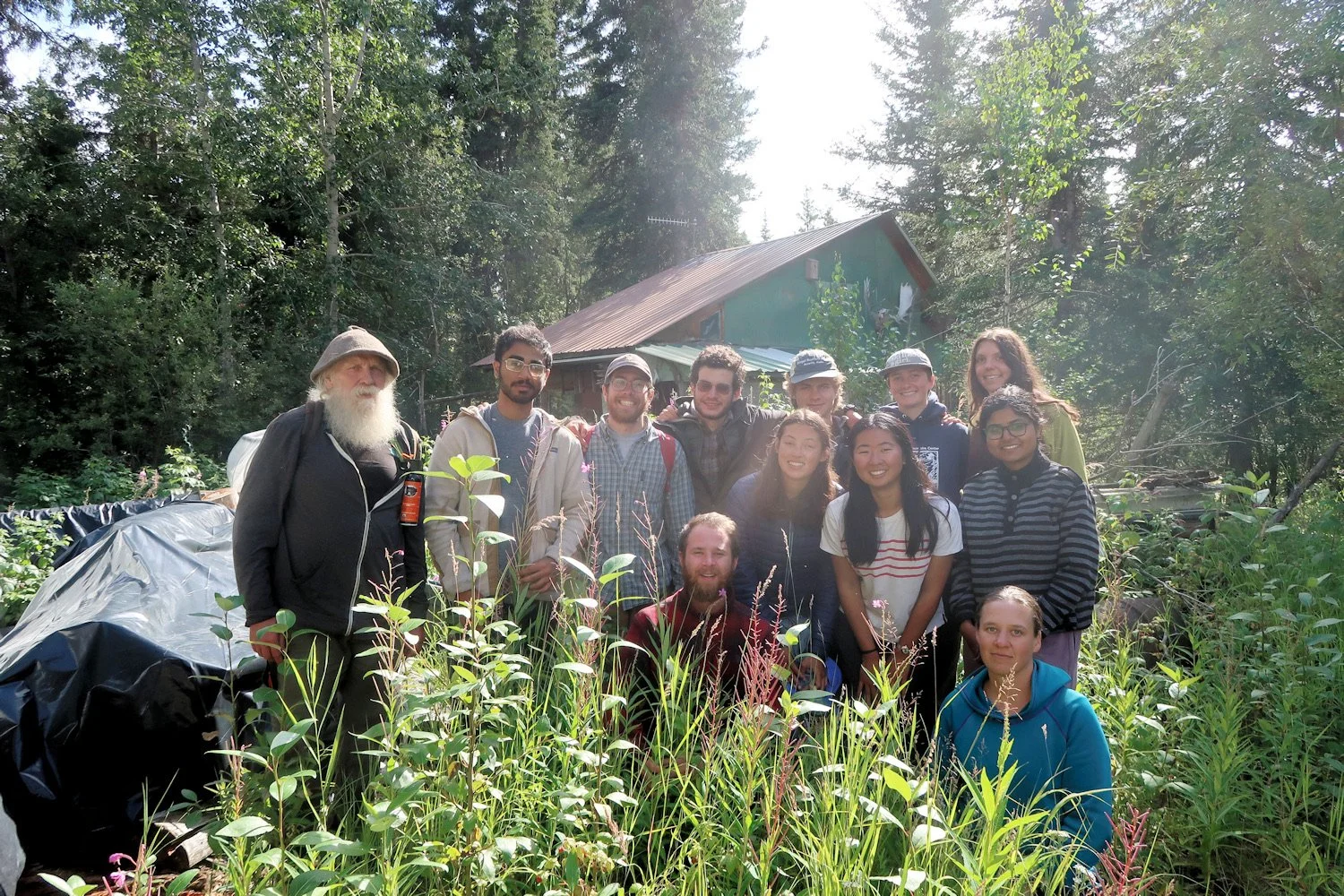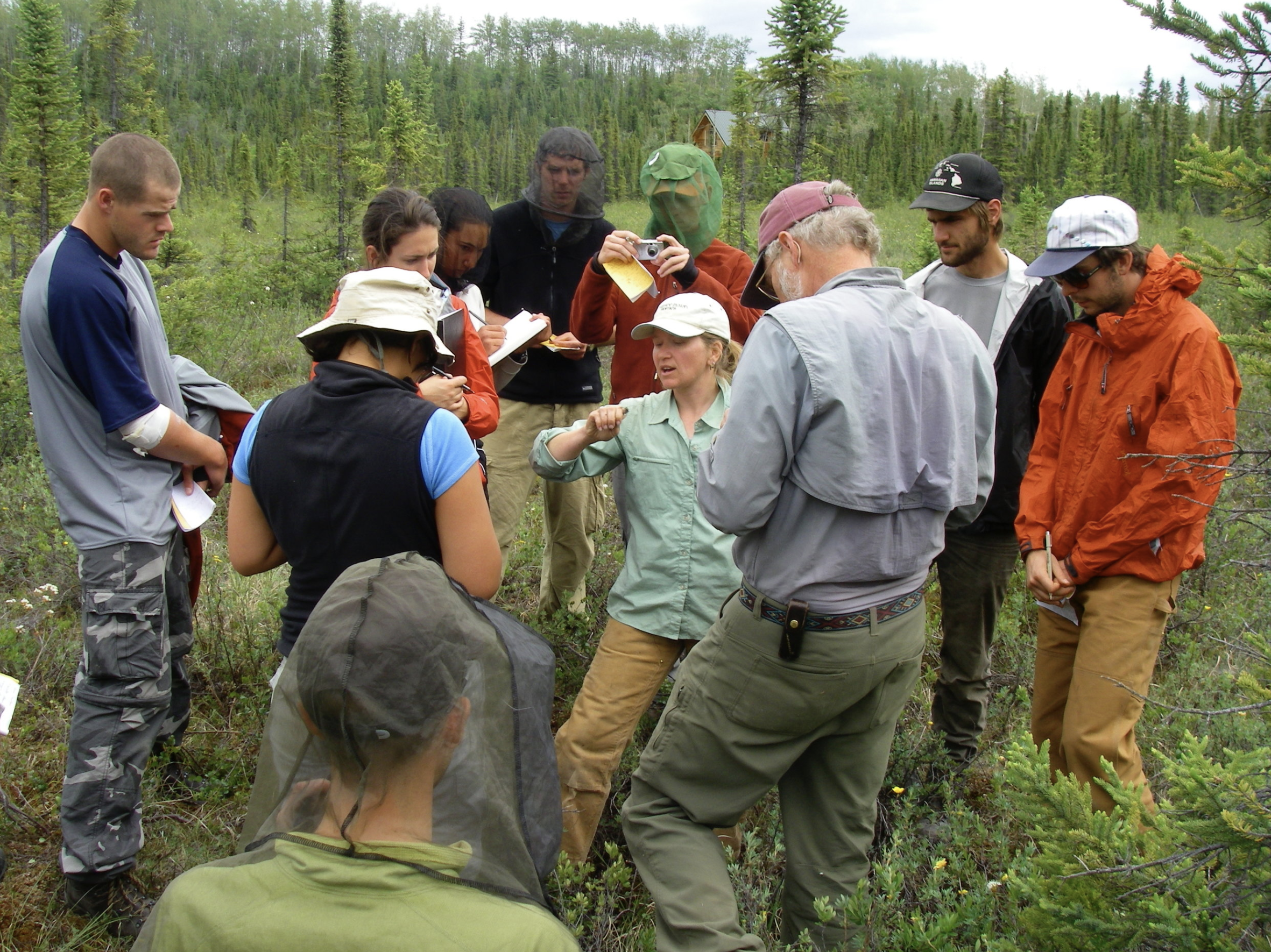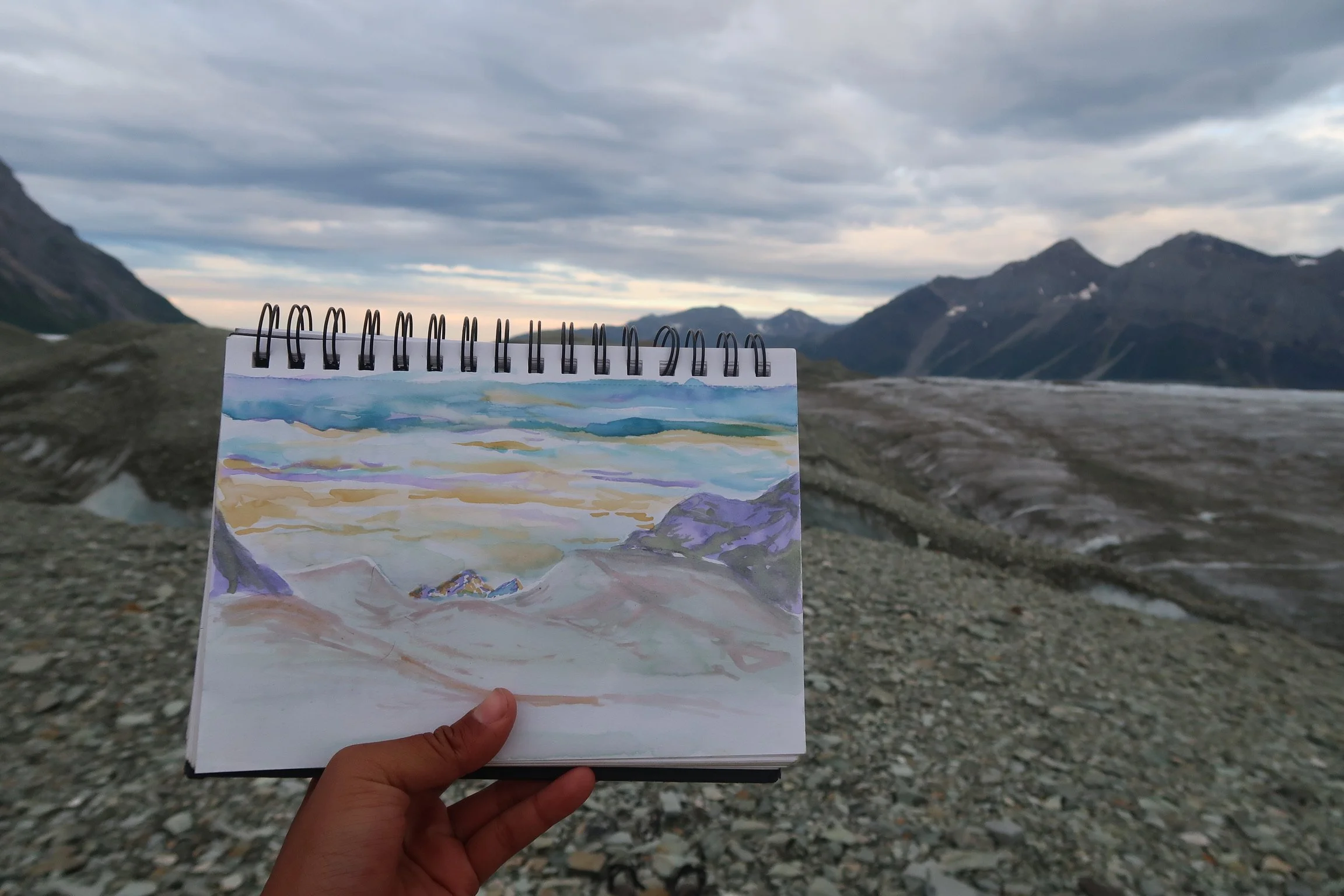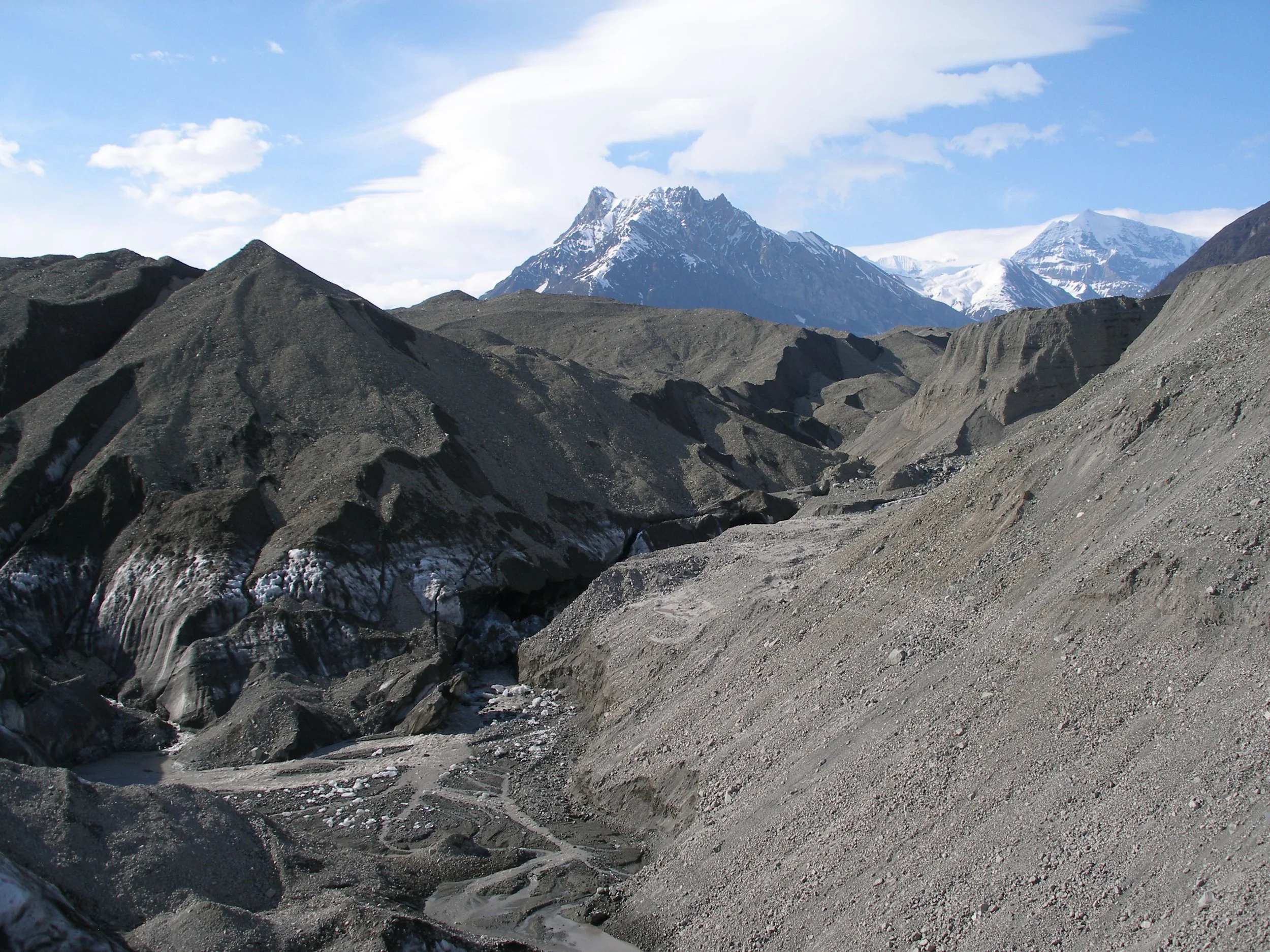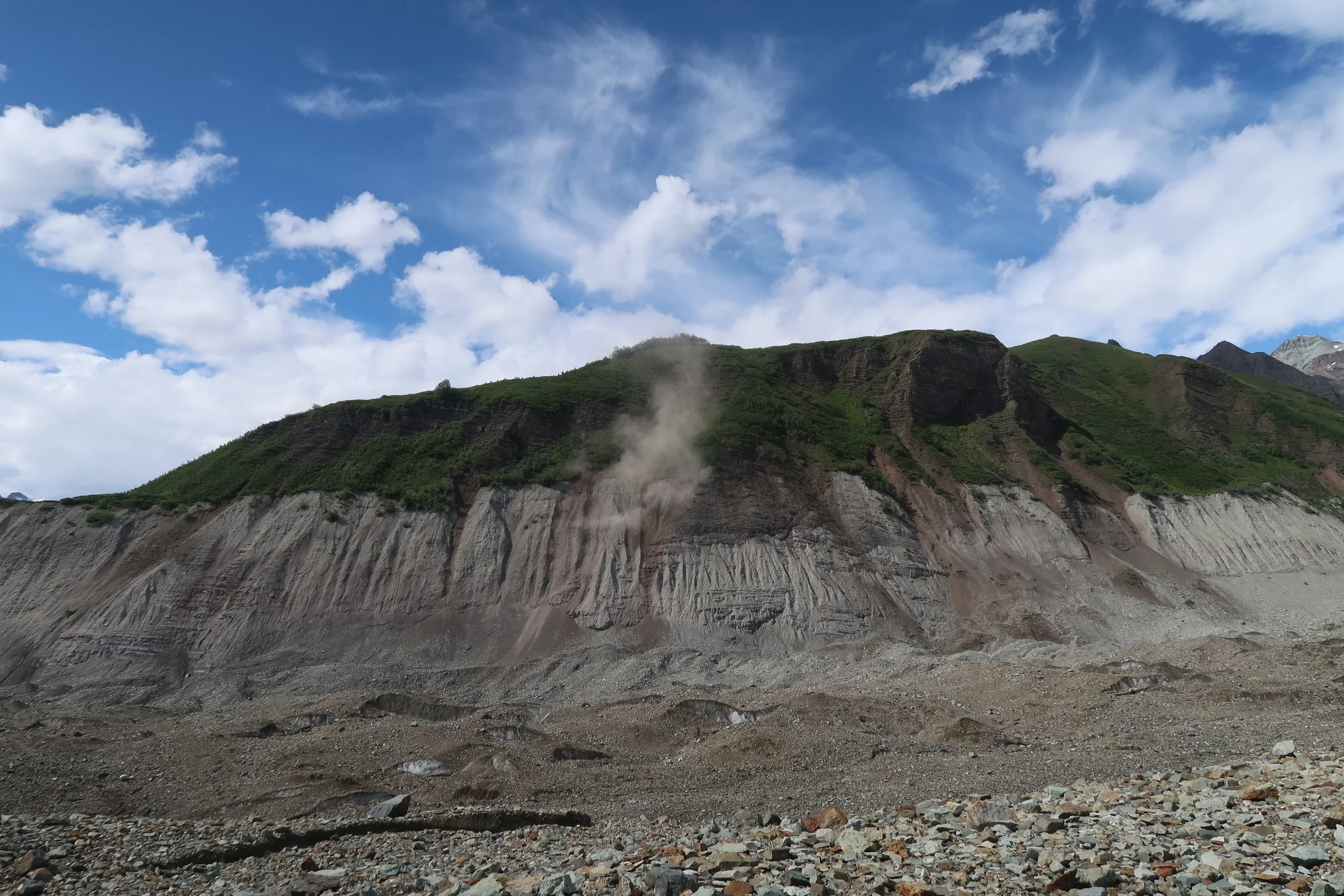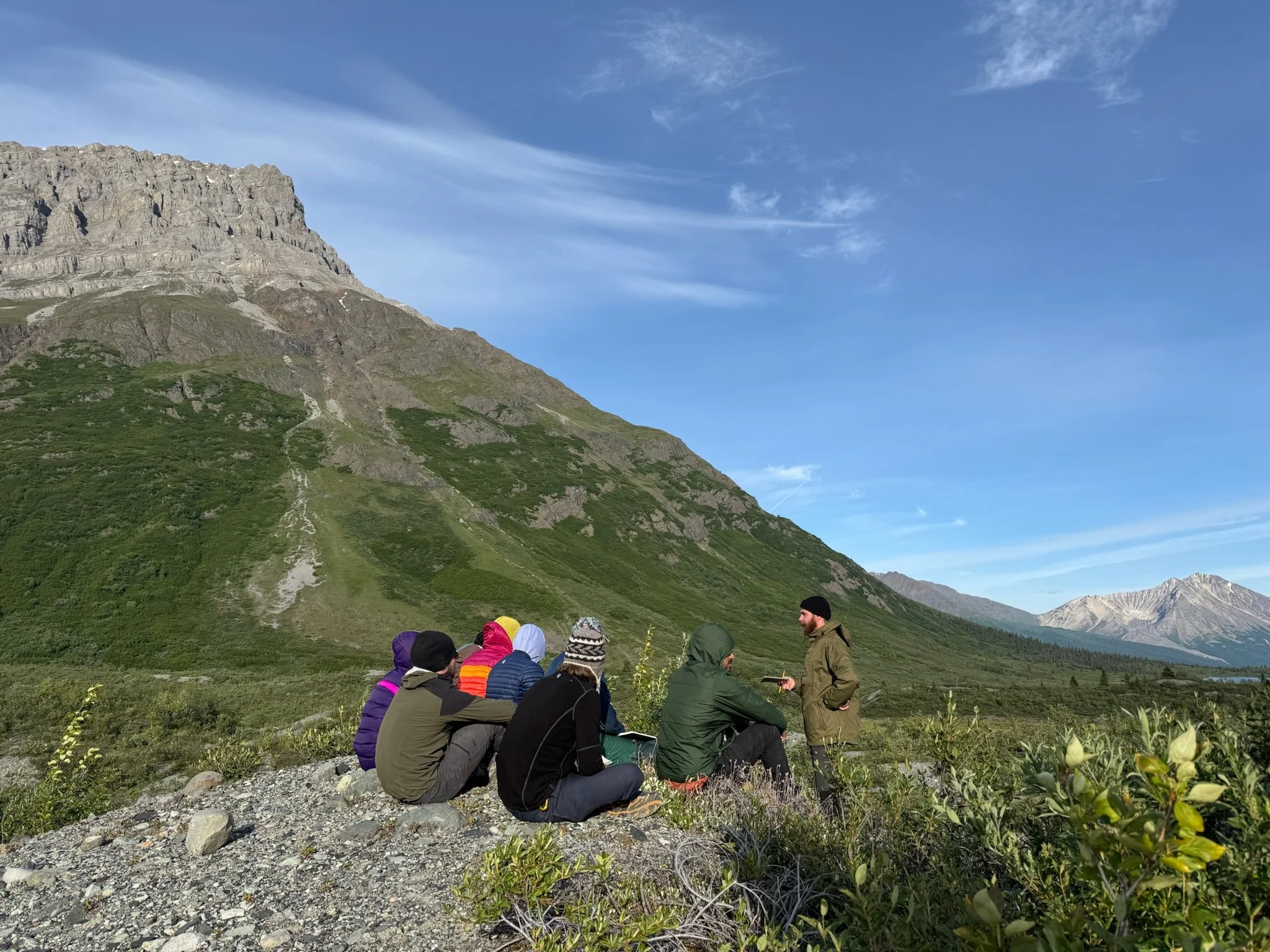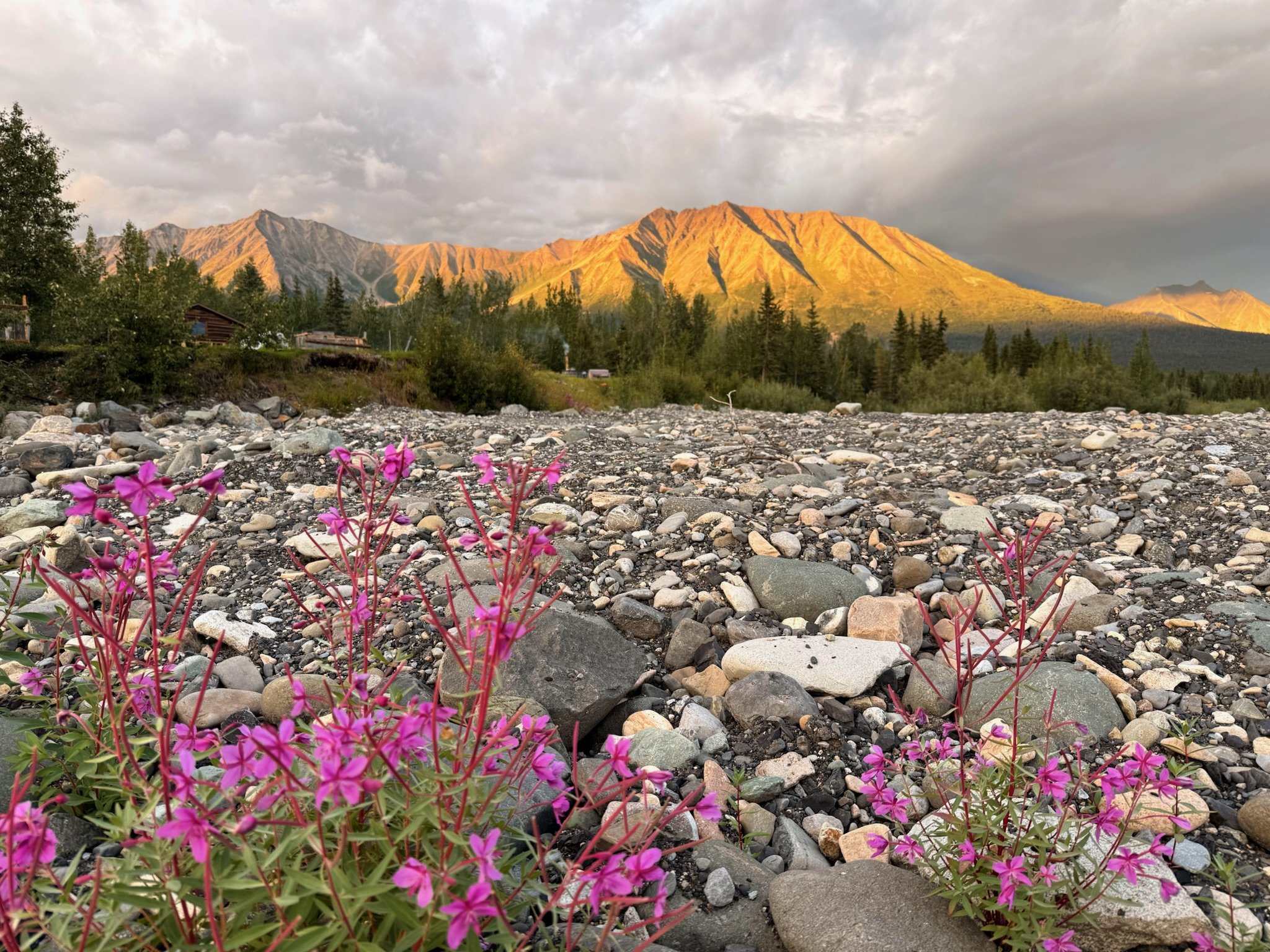
Curriculum
7-Week Field Program
June 22-August 10, 2026
6 Semester Credits
Earth & Climate Sciences
McCarthy, AK
Wrangell-St. Elias National Park & Preserve
Jump to:

Our curriculum explores landscape structure and processes, from tectonic uplift through glacial-interglacial cycles and anthropogenic climate change. We conceptualize climate-mediated changes to landscape structure as complex systems difficult to model or predict, linked by the flow of material and energy across wide temporal and spatial scales. Our focus includes local ecology, geophysical processes, glaciology, systems science, and land management (natural resource management and land use policy) in changing historical contexts. Narratives and stories from people with long-term and ancestral connections to these lands are an important part of the course, and are deeply impactful to students beginning research careers, and their lives, in the context of anthropogenic climate change.
Download our syllabus here.
When in McCarthy, we learn alongside guest instructors from around the region and take part in community events and workshops. In the backcountry, we use natural history field journaling and sketching techniques as tools to understand landscape processes occurring from rapid to geologic timescales. We travel across glaciers and through boreal forest into high mountain tundra, taking routes through striking terrain to reach sites for student projects. Climate change impacts to local landscape structures and processes, and to related social-ecological systems, are unifying themes we return to throughout the course.
Our surroundings are characterized by dynamic biophysical evolution, where ecosystem and Earth system processes are evident. We learn through direct experience with the land and from observations in the field; faculty-led exercises and site-talks; natural history field journaling and sketching; and the creation and presentation of small-group student final projects. These final projects are presented in McCarthy at the end of the program.
We build a collaborative learning community, in which observation is a daily practice and critical thinking is supported. Academic emphasis is on the research process and context, and on the value of viewing systems through multiple ways of knowing. We engage with faculty and guest instructors intimately familiar with this place through their research, writing, and artwork; participation in regional stewardship and climate adaptation planning; and involvement in community governance.
We are nested in a small and remote community, in which people value and rely on interdependence and collaboration. Personal growth can be achieved in places like this through building trust, dialogue, and mutual support with peers.
Learning from the landscape
From McCarthy, we trek up the glaciers and into the surrounding mountain terrain. The location is ideal for studying biophysical change on and along glaciers during climatic shifts past and present. We focus on the flow of material and energy through a landscape in disequilibrium. Landscape structures include sediment-covered and bare ice glaciers, rock glaciers, hydrological systems, permafrost, alpine tundra, boreal forest, and sites of human habitation. The Kennicott Valley reveals 230 million years of evolution and transformation at multiple spatial and temporal scales.
Exposed metamorphosed basalt, limestone, and shale sequences reveal processes occurring during the geological formation of western North America, including island arc and oceanic plateau formation and migration. Marine fossils reveal the age and oceanic source of sedimentary rocks. Effects of ongoing Yakutat microplate collision with North America show in the volcanic high peaks at the head of the Kennicott Valley and in igneous facies, dikes, and sills; and in the ~2000 meter uplift of the terrain around McCarthy, exhumed by Pleistocene glaciations to form the present pattern of peaks, plateaus, and U-shaped valleys.
Along the glacier margins, we observe deglaciation and ecological succession, processes most evident following the 1860 Little Ice Age maximum. We see how older moraines indicate the extent of previous glacial highstands. Landslides, cliff faces, and massive sediment transport by rivers and ice demonstrate tectonic uplift, denudation, and ecological adjustment to unstable conditions.
Ecosystems show adaptation to this instability and to seasonal extremes of productivity and energy imported from elsewhere by terrestrial and aquatic migrations. Human relationships to the land are part of landscape processes, and like our other systems of focus, they reverberate across space and time. Articulating links between these systems across temporal/spatial scales can be considered the “meta-narrative” of the program, our constant guiding framework.

“Wrangell Mountains Field Studies to me was far more than a high caliber academic experience. It is a totally different way of understanding the world around you through scientific reasoning, human thought and deep reflection. With a basis in the unknown the course was a different way of learning about and thinking about earth systems through a holistic lens.”
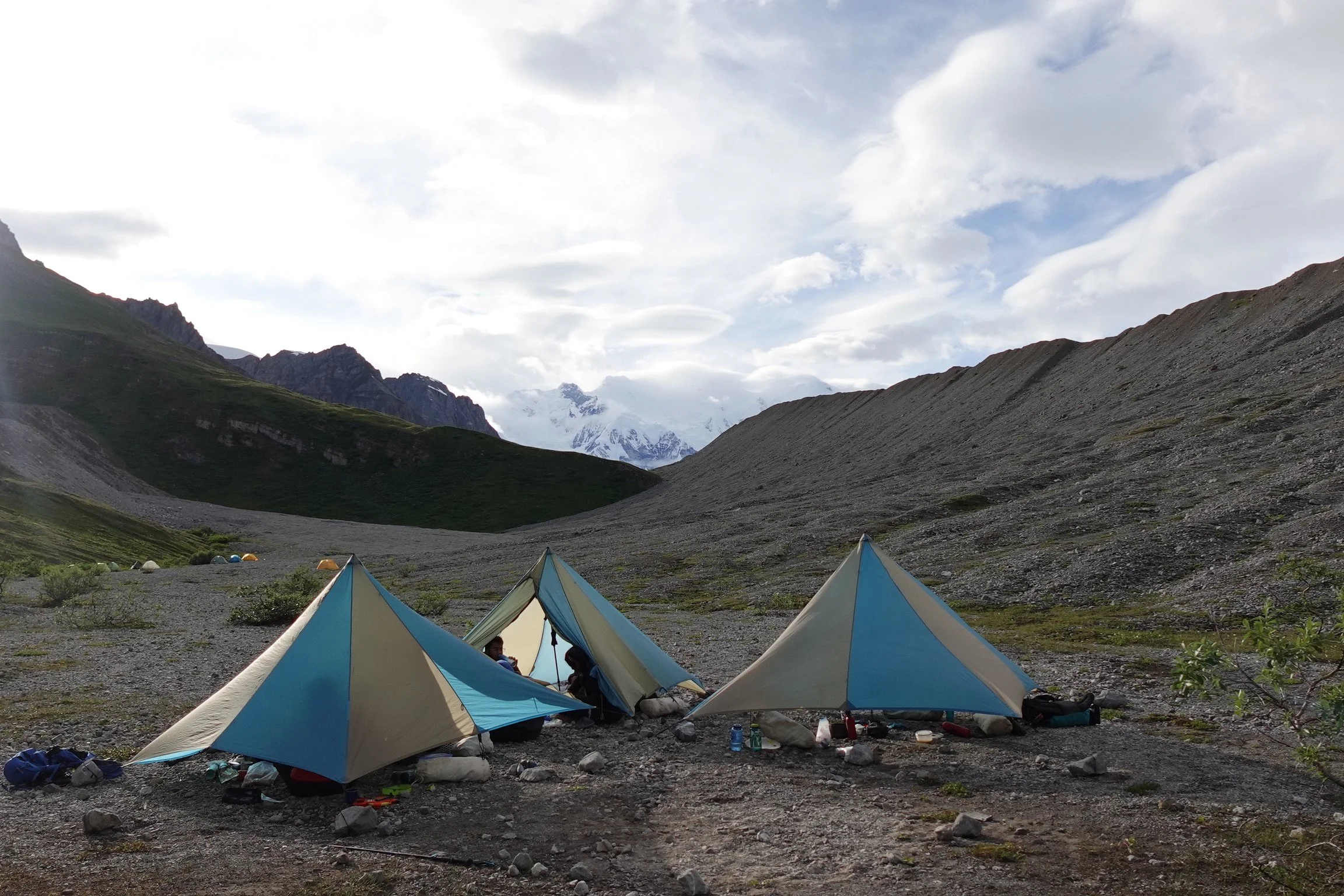
Ready to Explore the Wrangells?
Contact Us
Please submit this form with inquiries about Field Studies, or email fieldstudies@wrangells.org

